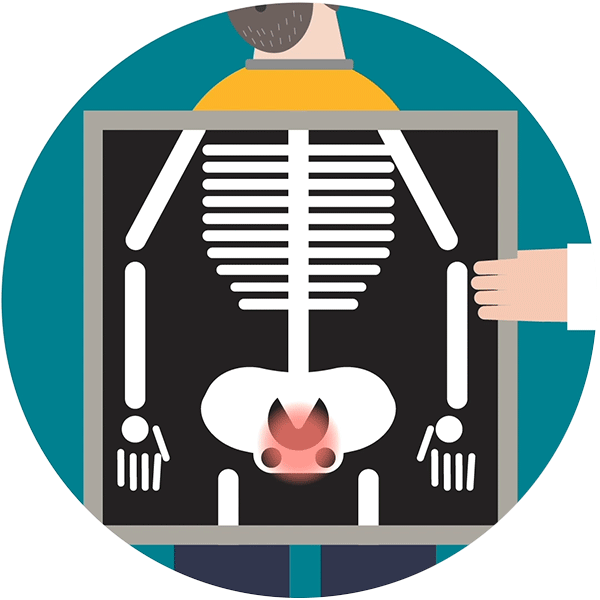Question 1

What is the prostate gland?
*Please select an option.
1/14
What do you know about prostate cancer? Many men aren't sure what their prostate is, where it is, what it does, or when to call a doctor if they think they might have a problem.
Take this short quiz and find out more about staying healthy and the signs of prostate cancer.
This is a tool provided by the Irish Cancer Society for information only and is not intended to replace a consultation with your doctor.
This checklist is not a substitute for a doctor. If you are concerned about your prostate health, please visit your doctor, regardless of what results you have on our checklist.
For more information call our Support Line Freephone 1800 200 700 and speak to one of our cancer nurses for confidential advice, support and information.
For more information on prostate cancer: www.cancer.ie/prostate (Open in a new window)
You may find it helpful to print your results and bring them with you to your doctor.
This is a tool provided by the Irish Cancer Society for information only and is not intended to replace a consultation with your doctor.
For more information call our Support Line Freephone 1800 200 700 and speak to one of our cancer nurses for confidential advice, support and information.